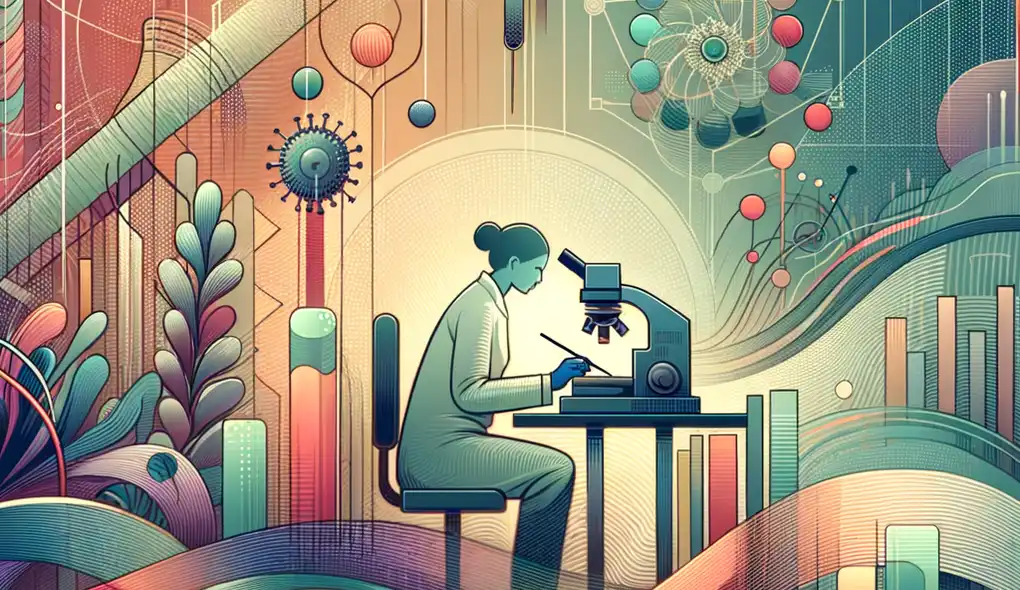How would you handle a situation where your experiment did not produce the expected results?
Microarray Analyst Interview Questions
Sample answer to the question
If my experiment did not produce the expected results, I would first review my experimental design and methodology to ensure that there were no mistakes or errors in the process. Then, I would analyze the data and compare it with the expected results. If there are any significant discrepancies, I would consult with my supervisor or colleagues to get their insights and opinions. Additionally, I would conduct further experiments or repeat the experiment to verify the results. It's important to remain open-minded and not be discouraged by unexpected outcomes, as they can often provide valuable insights and lead to new discoveries.
A more solid answer
If my experiment did not produce the expected results, I would first meticulously review my experimental design, methodology, and data analysis process to identify any potential errors or discrepancies. Attention to detail is crucial in identifying areas where mistakes may have occurred. I would consult my supervisor or colleagues, sharing the data and discussing my observations to gain additional insights and perspectives. Collaboration is key in finding alternative explanations for the unexpected results. If necessary, I would repeat the experiment to validate the findings or modify the methodology to address any potential limitations. This demonstrates my problem-solving skills and adaptability. Additionally, I would investigate previous studies, scientific literature, and attend conferences to gather more information and understand if similar results have been reported by others. By proactively seeking knowledge, I can contribute to the growth and innovation within the field of microarray analysis.
Why this is a more solid answer:
The solid answer expands on the basic answer by providing more specific details and examples. It highlights the candidate's attention to detail in reviewing the experimental design and data analysis process to identify errors. It also emphasizes their collaboration skills by mentioning consulting with supervisors and colleagues. The mention of investigating previous studies and scientific literature showcases their proactive approach to gather knowledge and contribute to the field. However, the answer could be further improved by providing a specific example from the candidate's past experience where they successfully handled unexpected results in an experiment.
An exceptional answer
In the event that my experiment did not yield the expected results, I would embark on a comprehensive analysis of every step in the experimental process – from sample preparation to data analysis. By meticulously reviewing my experimental design, I can identify potential sources of error or overlooked variables. In one instance during my undergraduate research, an unexpected variation in results was traced back to an error in the sample labeling process. I meticulously retraced my steps, identified the issue, and repeated the experiment, ensuring accurate data collection. Collaboration is vital, so I would engage in discussions with colleagues to gain alternative perspectives and insights. Recently, I encountered an anomaly in the microarray data that led me to consult with an experienced geneticist who suggested a potential technical artifact. This collaboration allowed me to address the issue and refine my analysis approach. Additionally, I would investigate relevant scientific literature and attend conferences to broaden my knowledge and explore potential explanations for the unexpected results. By adopting this multidimensional approach, I believe in turning unexpected results into valuable learning opportunities that contribute to the advancement of genetic analysis.
Why this is an exceptional answer:
The exceptional answer provides a comprehensive response to the question by including specific details and examples from the candidate's past experiences. It showcases the candidate's strong analytical and problem-solving skills by describing their meticulous review of the experimental process to identify errors and the detection of an error in the sample labeling process. The mention of collaboration with colleagues and seeking insights from an experienced geneticist highlights their effective teamwork and knowledge-sharing abilities. Furthermore, attending conferences and researching scientific literature demonstrates their commitment to continuous learning and staying updated with the latest developments in the field. Overall, the exceptional answer stands out by providing a well-rounded and detailed approach in handling unexpected results in an experiment.
How to prepare for this question
- Familiarize yourself with different statistical and data analysis techniques to effectively analyze and interpret the results of microarray experiments.
- Stay updated with the latest advancements in microarray technology and genetic analysis by regularly reading scientific journals and attending relevant conferences.
- Develop strong attention to detail and organizational skills to ensure accurate recording and maintenance of research data.
- Enhance your collaboration skills by actively participating in group research projects or seeking opportunities to work with colleagues and experts in the field.
- Reflect on past experiences where you faced challenges or unexpected results in experiments and think about how you handled those situations. Be prepared to share specific examples during the interview.
What interviewers are evaluating
- Analytical skills
- Problem-solving skills
- Collaboration skills
- Attention to detail
Related Interview Questions
More questions for Microarray Analyst interviews